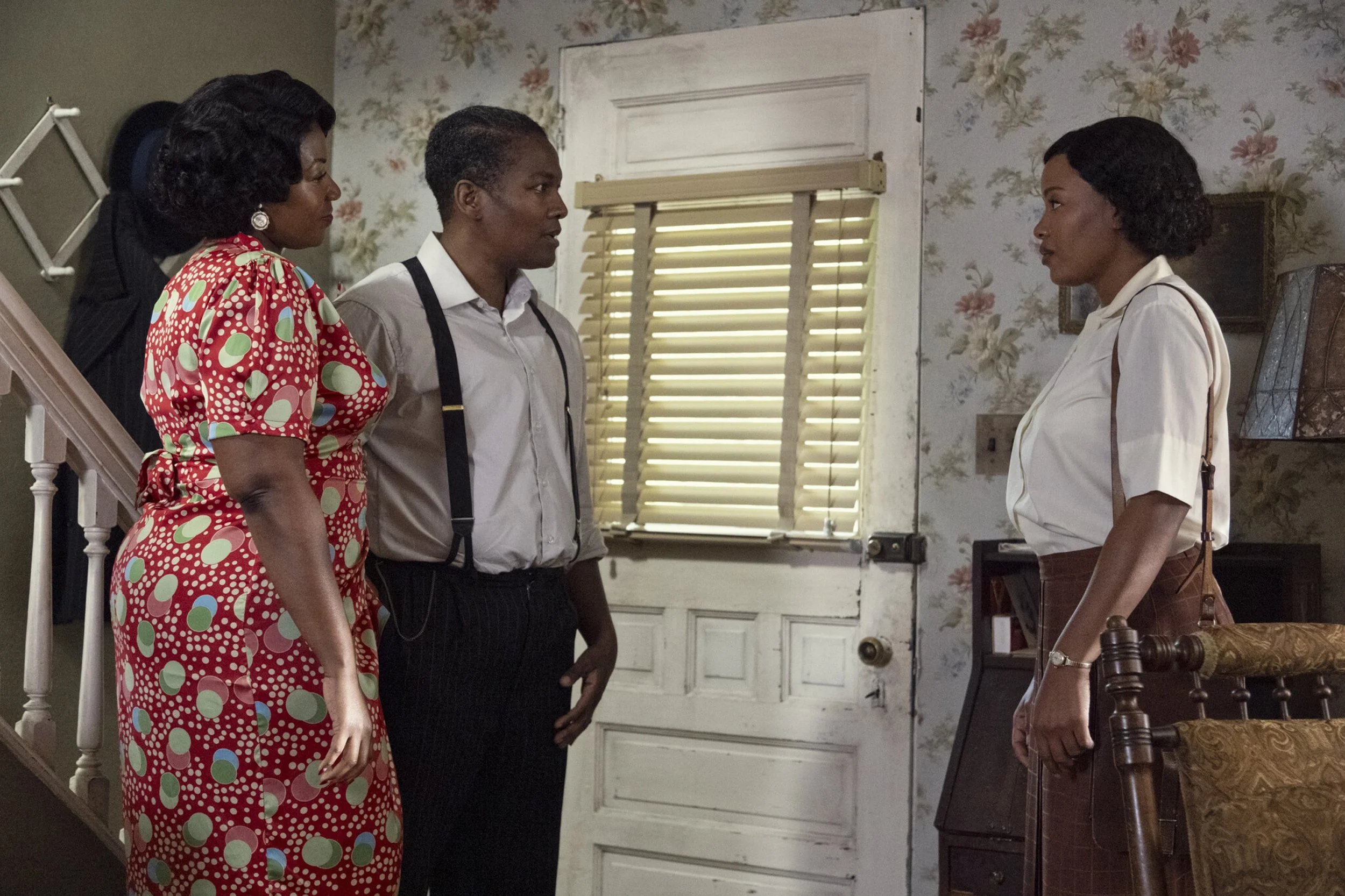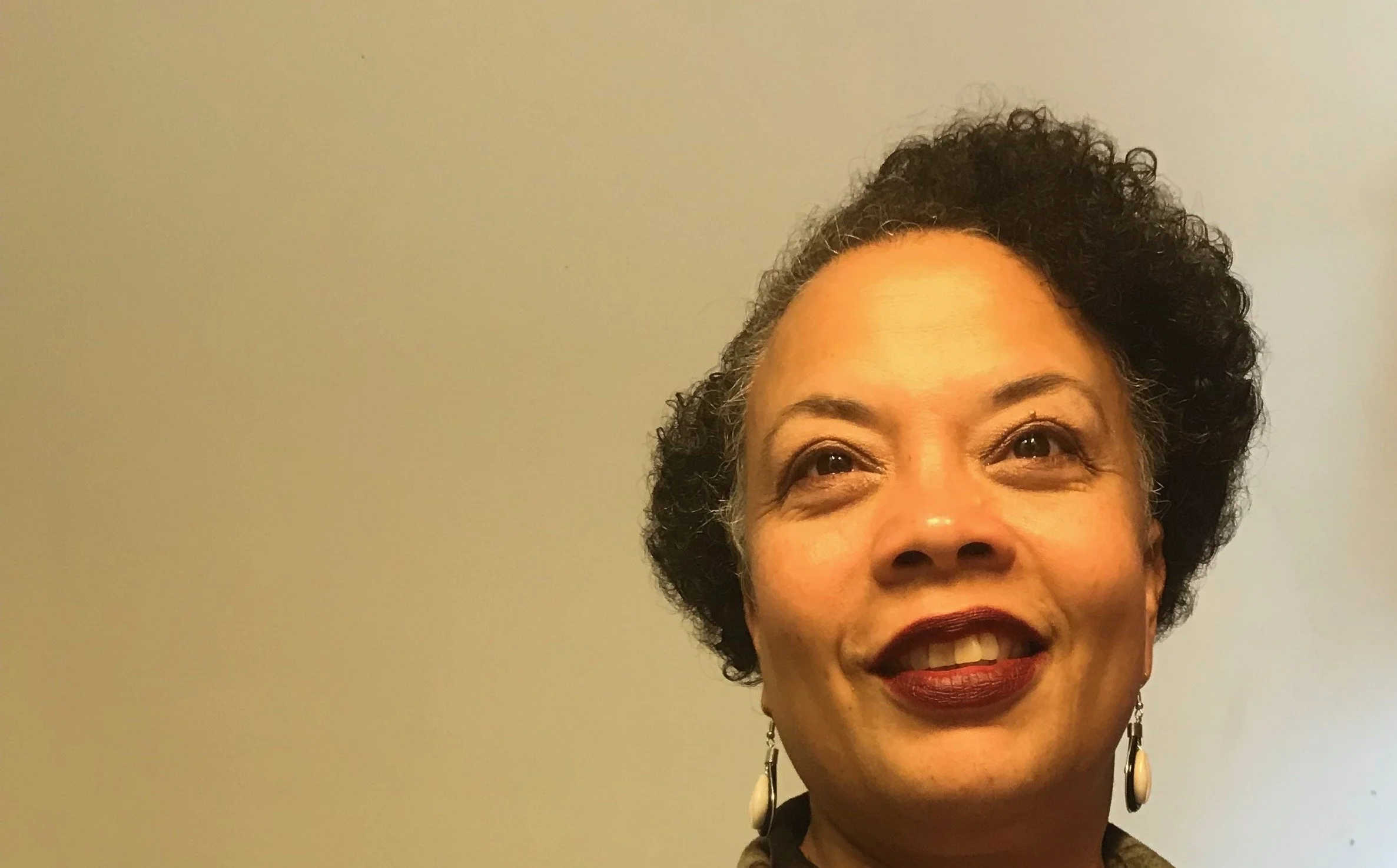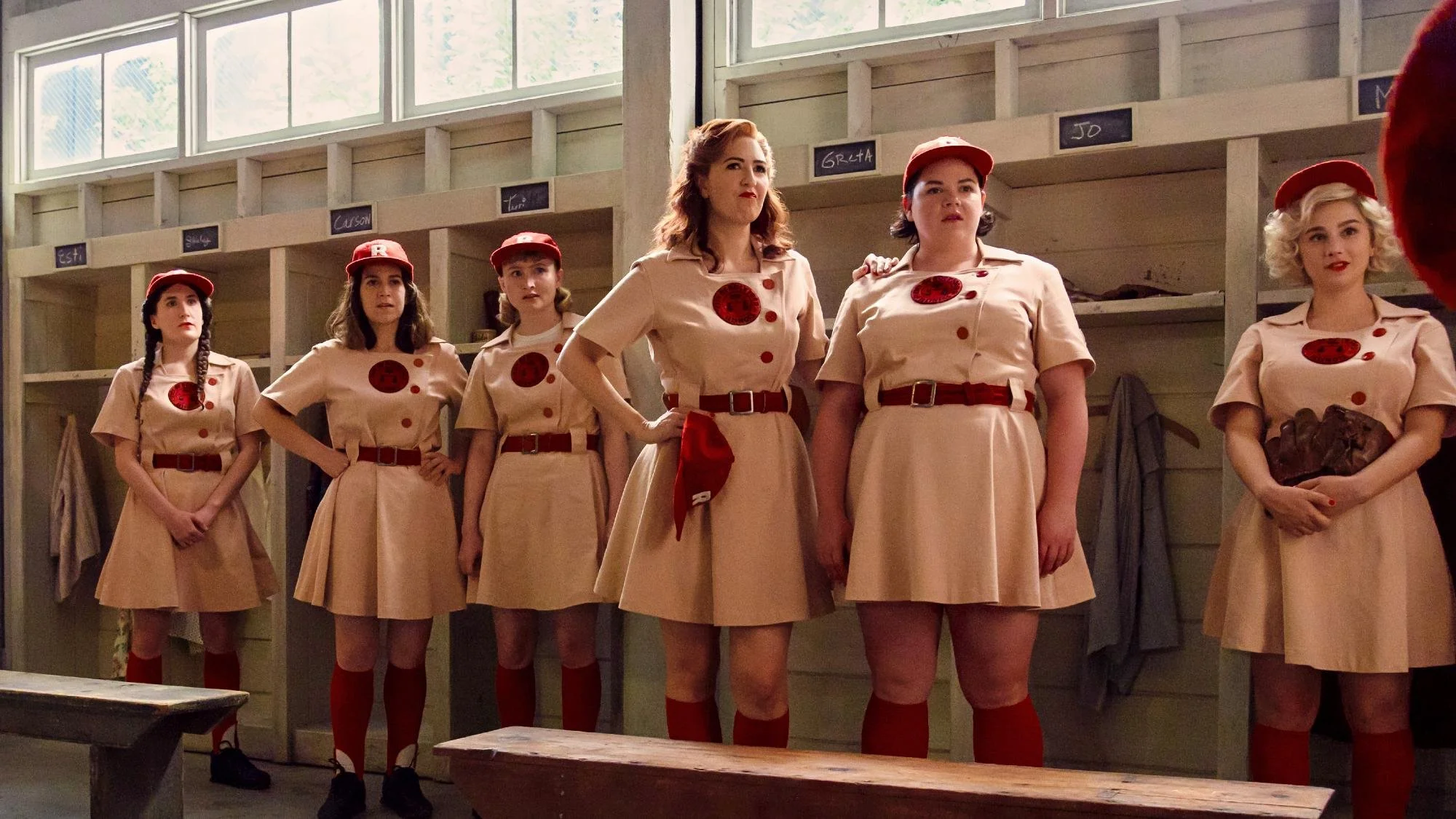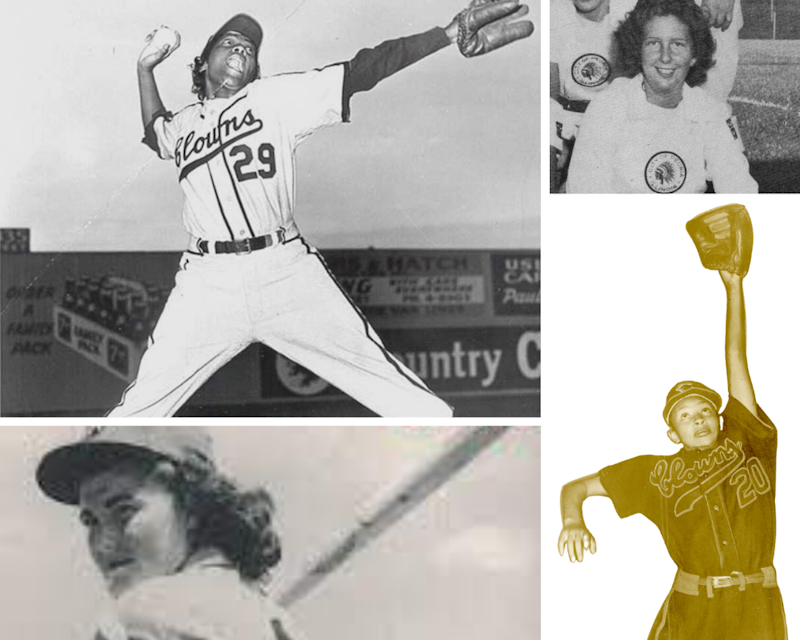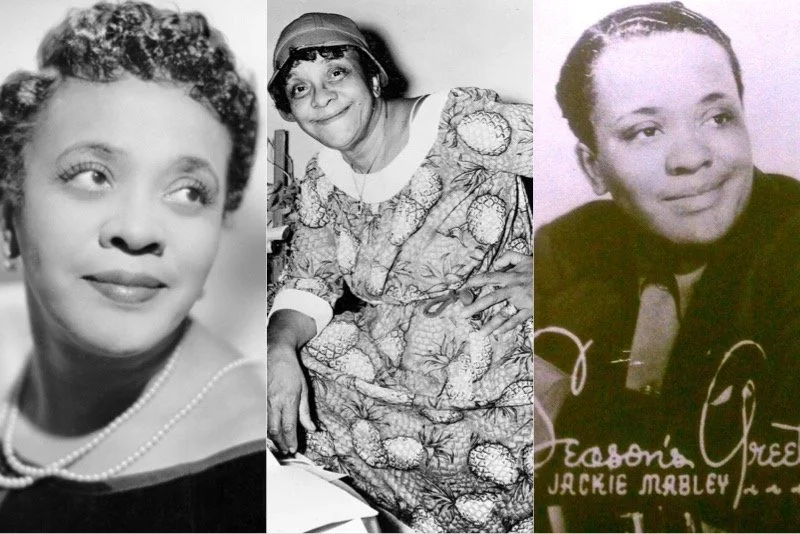Ep. 20 - Chosen Family in A LEAGUE OF THEIR OWN
From left to right: Patrice Covington (Gracie), Lea Robinson (Bertie), and Chanté Adams (Maxine “Max”) in A League of Their Own. Photo credit Amazon Studios
In episode 20, we "chat up" the Amazon Prime series A LEAGUE OF THEIR OWN with author and poet Toni Asante Lightfoot. The conversation focuses on the character Max Chapman, her family including her trans uncle Bertie (Lea Robinson), best friend Clance, and Rockford's African American community as depicted in the series.
A League of Their Own, co-created by Abbi Jacobson (who plays Rockford Peaches player Carson Shaw) and Will Graham, is inspired by the 1992 film directed by Penny Marshall, and the untold stories of Black women baseball players, and Latina and queer women who played in the All-American Girls Professional Baseball League (AAGPBL) in the 1940s.
Max Chapman (played by Chanté Adams) is African American from Rockford, Illinois, homebase for AAGPBL’s Rockford Peaches. Max is a talented pitcher, inspired by the star players in the Negro Leagues. In the first episode of the series, Max goes to the AAGPBL tryouts in Chicago, but is turned away because of her race.
The Rockford Peaches baseball team is made up of white women and two Latinas (Cuban and Mexican) who look “Spanish.” With the support of her best friend Clance (played by Gbemisola Ikumelo), Max must forge her own way to play the game she loves in a segregated world.
Guest: TONI ASANTE LIGHTFOOT - Author, Poet
“How do we thrive, even in severe oppression, even though outwards, the arrows that are being thrown at us?
We find those of like minds and hearts and we form community.”
TONI ASANTE LIGHTFOOT, poet, performer, educator, massage therapist, and acupuncturist, is a facilitator of positive change. She attended Howard University and majored in Civil Engineering before transferring to Education and Geology.
Toni turned her love of writing poetry and helping people better their lives into a career of performance poetry and teaching life skills through poetry.
She co-founded the groundbreaking performance troupe The Modern Urban Griots (aka The MUG) in 1995. In her decades as poet and educator she has performed in countless venues, including theater, clubs, poetry slams, and prison tours. She has coached poets for slam competitions and taught poetry, developing curriculum to be used across content areas.
Her poems can be found online and in several anthologies including 360 Degrees: a Revolution of Poetry, Beyond the Frontier, Full Moon on K St: poems about Washington, DC, and Roll Call: a generational anthology of social and political Black art and literature.
She is the mother of one biological child and has mothered thousands of others as an educator and healer.
Toni grew up in Washington, DC and is a 20-year resident of Chicago. As a child, she attended many minor league baseball games throughout the midAtlantic states with her mother. From watching baseball Toni learned the language of the body and the thrill of physical achievement and competition for performers and audiences.
A LEAGUE OF THEIR OWN
Rockford Peaches Pictured (L to R) Shirley Cohen (Kate Berlant), Carson Shaw, Terri (Ray Gray), Greta Gill (D’Arcy Carden), Jo De Luca (Melanie Field), Maybelle Fox (Molly Ephraim).
A League of Their Own brings the Rockford Peaches back to the field in Rockford, Illinois. It’s 1943 when Carson Shaw (Abbi Jacobson) leaves Idaho for the All-American Girls Professional Baseball League tryouts in Chicago. There she meets other women who dream of playing professional baseball and forms connections that open a new world to Carson.
A League of Their Own, the 2022 series, is available on Amazon Prime.
What was not prominent in the 1992 movie A League of Their Own (more subtext) are untold stories of Black, Latina, and queer women baseball players and the lives they lived in the 1940s and 50s. These stories are highlighted in the Amazon Prime series.
ABOVE: The real women baseball players from the 1940s and 50s: First column (top to bottom): Toni Stone, Margaret "Marge" Villa; Second: Maybelle Blair, Mamie "Peanut" Johnson
BONUS CONTENT
Toni Asante Lightfoot reads her poem “Bat Her Up: Mom’s Mabley watches Negro women play ball for their supper” (mentioned in Episode 20).
JACKIE “MOMS” MABLEY (1897-1975)
African American comedienne Loretta Mary Aiken created the elderly lady persona Jackie “Moms” Mabley. Mabley started out in the all-Black Theater Owners Booking Association or T.O.B.A. vaudeville circuit in the 1920s. She was the first female comedian to perform solo at the Apollo Theater in Harlem and headline Carnegie Hall. Moms Mabley emerged to become a mainstream stage and television star, pushing the boundaries of comedy by tackling topics such as gender, sex and racism.


